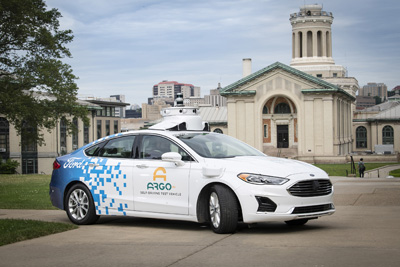In a letter to the NHTSA, Ford announced it is abandoning its petition that would allow it to operate autonomous vehicles without physical human controls.
Autonomous vehicle technology has grown in popularity since the launch of Tesla’s suite of autonomous driving offerings. Now, countless automakers, including Mercedes-Benz, General Motors and Ford, have all jumped on the technology as a new revenue stream, but many are learning it isn’t as easy as it looks.
Ford was recently forced to abandon its self-driving joint venture with Volkswagen, and now, according to Reuters, it is further distancing itself from the technology it once explored.
More specifically, Ford announced it will no longer pursue a petition to operate autonomous vehicles without human controls. This technology was initially meant to be implemented as part of its joint venture with Volkswagen, Argo AI, but with the abandoning of the project, Ford is no longer looking to do so.
Ford’s letter to the NHTSA said autonomous vehicles and their implementation will be a significant challenge, especially as the automaker looks to turn the technology into a business model of its own.
“As evidenced by the planned shutdown of our ADS partner Argo AI, we believe the road to fully autonomous vehicles, at scale, with a profitable business model, will be a long one,” Ford said.
Ford initially planned for Argo AI to be a delivery and ride-hailing competitor, similar to the Cruise subsidiary established by General Motors. GM is still pursuing a similar petition with the NHTSA to operate vehicles without physical human controls.
This isn’t to say Ford is abandoning autonomous driving as a whole; far from it. Ford is continuing to grow the number of vehicles it is equipping with its BlueCruise level 2 self-driving technology, and the Blue Oval has even established a new AV subsidiary, but without the help of VW Group.
While Ford and GM remain hooked on the idea of a robotaxi competitor, not all automakers are following their path. Mercedes-Benz, which has recently become a frontrunner in autonomous vehicle technology, is opting to deliver the technology directly to customers. The most recent deployment of level 3 autonomy is coming to the EQS and S-Class in certain states in the U.S.










Abby Andrews